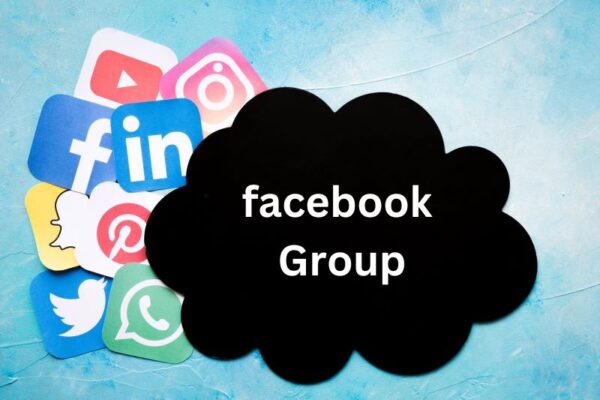Introduction to Affiliate Marketing and Facebook Groups

Affiliate marketing has rapidly grown in popularity as one of the most effective ways to earn passive income online. At its core, affiliate marketing involves promoting other people’s or companies’ products through a unique referral link. When someone buy through your link, you earn a commission. It’s a win-win for both the affiliate marketer and the company, as companies can expand their reach without the upfront cost of advertising, and affiliates get rewarded for their promotional efforts.
Facebook, with over 2.8 billion active users, has evolved from a simple social media platform into a powerful business tool. Among its numerous features, Facebook Groups stand out as highly engaging, community-driven spaces where individuals with shared interests gather. Unlike Facebook Pages, Groups foster deeper interactions, making them ideal for marketers to build meaningful relationships with potential customers. In this post, we’ll explore how you can leverage Facebook Groups to effectively promote affiliate products and grow your affiliate marketing business.
We will receive a commission if you make a purchase through our affiliate link at no extra cost to you. Please read our disclosure policy for more information.
Table of Contents
Why Facebook Groups Are Ideal for Affiliate Marketing
Facebook Groups provide a unique opportunity for affiliate marketers for several reasons:
High Engagement Levels in Niche Communities: Unlike Pages, where users may passively consume content, members of Facebook Groups are generally more active and engaged. These members join Groups that cater to their interests, so they’re already primed to participate in conversations. This high engagement rate translates into more opportunities for you to showcase products that resonate with the group members’ needs.
Targeted Audience Reach Within Specific Interest Groups: With Facebook Groups, you can target specific niches or interests directly. Whether it’s fitness enthusiasts, tech lovers, or DIY crafters, you can find a Group that aligns with the affiliate products you promote. This laser-targeted approach ensures that your content reaches a highly relevant audience, increasing the likelihood of conversions.
Building Trust and Authority in a Closed Group Environment: One of the key aspects of affiliate marketing is trust. In Facebook Groups, you can build credibility over time by regularly contributing valuable content, engaging in discussions, and helping members solve problems. When people trust you, they’re more likely to click on your affiliate links and buy.
Organic Promotion vs. Paid Ads: Unlike Facebook Pages, where organic reach has declined over the years, Group content still enjoys relatively high organic reach. Members are more likely to see posts from Groups they are part of, making it easier to promote products organically without having to rely heavily on paid advertising.
Click on the image for buy this book

Types of Facebook Groups for Affiliate Marketing
Before diving into affiliate marketing in Facebook Groups, it’s important to understand the different types of Groups and their potential for affiliate marketing:
Public Groups: These are open for anyone to join, and the content can be viewed by anyone, even non-members. While public Groups provide a broad reach, they may not offer as much engagement as private or closed Groups because users don’t feel as invested.
Private Groups: These are more exclusive, and content is only visible to members. Private Groups are ideal for building a more engaged community where members feel a sense of belonging and are more likely to participate. This kind of setting fosters trust, making it a great space for affiliate marketers to promote products.
Closed Groups: Similar to private Groups, closed Groups are invite-only or require approval to join. This adds another layer of exclusivity, and the members of such Groups are usually more committed and engaged. Closed Groups can be particularly effective for affiliate marketers targeting niche audiences, as the discussions tend to be more focused.
Each type of Group has its own pros and cons, but in general, private or closed Groups offer the best opportunity for building strong relationships and trust—critical components of successful affiliate marketing.
Setting Up Your Own Affiliate Marketing Facebook Group
If you’re serious about leveraging Facebook Groups for affiliate marketing, setting up your own Group can be a great long-term strategy. Here’s a step-by-step guide to creating a thriving affiliate marketing Facebook Group:
Steps to Create a Facebook Group: Start by choosing a niche that aligns with the products or services you’ll be promoting. Next, create a Group with a clear and catchy name that reflects the Group’s purpose. Customize the Group settings based on whether you want it to be public, private, or closed. Create an attractive cover photo that captures attention and clearly communicates the value of the Group.
Establishing Rules and Guidelines for the Group: Set clear rules to ensure the Group remains a positive and spam-free environment. This can include guidelines on what type of posts are allowed, how to interact respectfully with others, and how to disclose affiliate links.
Creating Valuable Content That Educates and Informs: Affiliate marketing is not about bombarding your Group with sales pitches. Instead, focus on creating educational content that helps your members. Share product tutorials, industry tips, case studies, and reviews. The more value you provide, the more likely members will trust your recommendations.
Regular Engagement and Interaction Strategies: Be an active participant in your own Group. Respond to questions, participate in discussions, and encourage others to share their experiences. Regular engagement builds relationships, making it easier for members to trust you when you promote products.
How to Promote Affiliate Products in Existing Facebook Groups
If creating your own Group isn’t something you want to do right away, promoting affiliate products in existing Facebook Groups is another excellent option. Here are some strategies for success:
Building Trust and Credibility: Before you start promoting products, establish yourself as a valuable member of the Group. Engage in meaningful discussions, answer questions, and provide useful insights. This builds trust and credibility, making it easier to share affiliate products later.
Best Practices for Sharing Affiliate Links: When you’re ready to promote, avoid dropping affiliate links without context. Instead, share valuable content that highlights the benefits of the product. Make sure the product aligns with the Group’s interests to avoid coming across as spammy.
How to Engage in Conversations: Look for opportunities to organically mention the affiliate product in response to questions or discussions. For example, if someone asks for a recommendation on a product you’re promoting, you can share your affiliate link as part of your answer.
Identifying Affiliate-Friendly Facebook Groups: Not all Groups allow affiliate marketing. Make sure to read the rules before promoting your links. Many Groups are strict about spammy promotions, so it’s essential to follow the guidelines to avoid getting banned.
Best Practices for Sharing Affiliate Links in Facebook Groups
When sharing affiliate links in Facebook Groups, the way you present them can make a big difference. Follow these best practices to maximize your success:
Crafting Value-Driven Posts: Focus on how the product will benefit the Group members. For example, don’t say directly “Buy this product,” you can say, “I’ve been using this tool, and it’s helped me save time on [task]. Here’s a link if you’re interested.”
Transparency and Disclosure: It’s important to disclose your affiliate relationship with the company. Not only is it a legal requirement, but it also builds trust with your audience. You can simply add a sentence like, “This post contains affiliate links, and I may earn a commission if you make a purchase.”
Timing and Frequency: Avoid overwhelming the Group with affiliate promotions. Space out your promotional posts and mix them with non-promotional content to keep the Group engaged without feeling like they’re being sold to.
Using Polls and Interactive Tools: Engage the Group by creating polls or asking questions that lead to a natural mention of your affiliate products. This creates interaction and makes the promotion feel more organic.
Content Strategies for Affiliate Marketing in Facebook Groups

Creating engaging content is key to keeping Group members interested and building trust. Here are some content strategies that work well for affiliate marketing in Facebook Groups:
Educational Posts Around Affiliate Products: Share posts that educate the Group members about the products you’re promoting. This can include how-to guides, product comparisons, or industry news related to the products.
Live Videos and Tutorials: Facebook Live is a powerful tool for affiliate marketing. Host live video sessions where you demonstrate the products you’re promoting, answer questions in real-time, and show how the products can solve specific problems.
Exclusive Events or Webinars: Organize exclusive webinars or virtual events for your Group members. During these events, you can showcase the products, provide in-depth demonstrations, and offer special discounts for attendees using your affiliate link.
Case Studies and Success Stories: Share case studies or personal success stories where the product you’re promoting helped solve a problem or achieve a goal. This type of content resonates well with audiences as it provides real-world examples of the product’s effectiveness.
Legal and Ethical Considerations in Facebook Group Affiliate Marketing
As with any marketing strategy, legal and ethical considerations are essential when promoting affiliate products in Facebook Groups:
Disclosing Affiliate Relationships: Be transparent about your relationship with the products you promote. The Federal Trade Commission (FTC) requires that affiliate marketers clearly disclose that they may earn a commission from the products they promote. This can be done by including a brief disclaimer in your posts.
Facebook’s Guidelines for Sharing Affiliate Links: Facebook has specific rules about the use of affiliate links in Groups. You’re familiar with these rules to avoid any penalties. Mostly or Some Groups have their own rules about affiliate marketing, so always read the guidelines before posting.
Avoiding Spammy Behavior: It’s important to strike a balance between promoting affiliate products and providing value. Over-promoting can lead to your posts being flagged as spam, which can damage your reputation and result in being removed from the Group.
Measuring Success and Optimizing Strategies
Measuring your success is essential for improving your affiliate marketing efforts in Facebook Groups. Here’s how to track your progress and optimize your strategies:
Tracking Affiliate Sales and Conversions: Most affiliate programs provide tracking tools that allow you to see how many clicks and sales your links generate. Use this data to evaluate which posts and strategies are working best.
Using Facebook Insights: If you own a Group, you can use Facebook’s built-in insights to track engagement metrics such as the number of posts, comments, and likes. This will help you understand which types of content resonate most with your audience.
Continuous Learning and Adapting: Facebook’s algorithm is constantly evolving, and Group dynamics can change over time. Stay updated on the latest trends and adapt your strategies based on the feedback you receive from Group members.
Conclusion
In conclusion, Facebook Groups offer a tremendous opportunity for affiliate marketers to connect with highly engaged and targeted audiences. By building trust, providing valuable content, and promoting products in an authentic way, you can effectively grow your affiliate marketing business through Facebook Groups. Whether you create your own Group or participate in existing ones, the key is to focus on fostering genuine relationships and helping Group members find solutions to their problems through the products you promote.
FAQs
Why are Facebook Groups a good platform for affiliate marketing?
Facebook Groups provide a highly engaged, niche-targeted audience. Members join Groups based on shared interests, making them more likely to interact with your content. This level of engagement and trust is ideal for promoting affiliate products, as people are more likely to trust recommendations from fellow Group members.
Can I promote affiliate products in any Facebook Group?
Not all Facebook Groups allow affiliate marketing. Before promoting products, always check the Group’s rules and guidelines. Many Groups have restrictions on promotional content to prevent spam. Some Groups may permit affiliate links if they are shared in a helpful and non-intrusive manner.
What type of Facebook Group should I create for affiliate marketing?
Creating a private or closed Group focused on a specific niche is ideal. This type of Group fosters community engagement and makes members feel exclusive. Choose a niche that aligns with the affiliate products you plan to promote, and offer valuable insights, tips, and product recommendations.
Is affiliate marketing in Facebook Groups profitable?
Yes, affiliate marketing in Facebook Groups can be highly profitable when done correctly. By targeting the right audience, building trust, and sharing relevant and valuable content, you can drive conversions and earn consistent commissions from your affiliate links.


2 thoughts on “Affiliate Marketing Through Facebook Groups:2024”